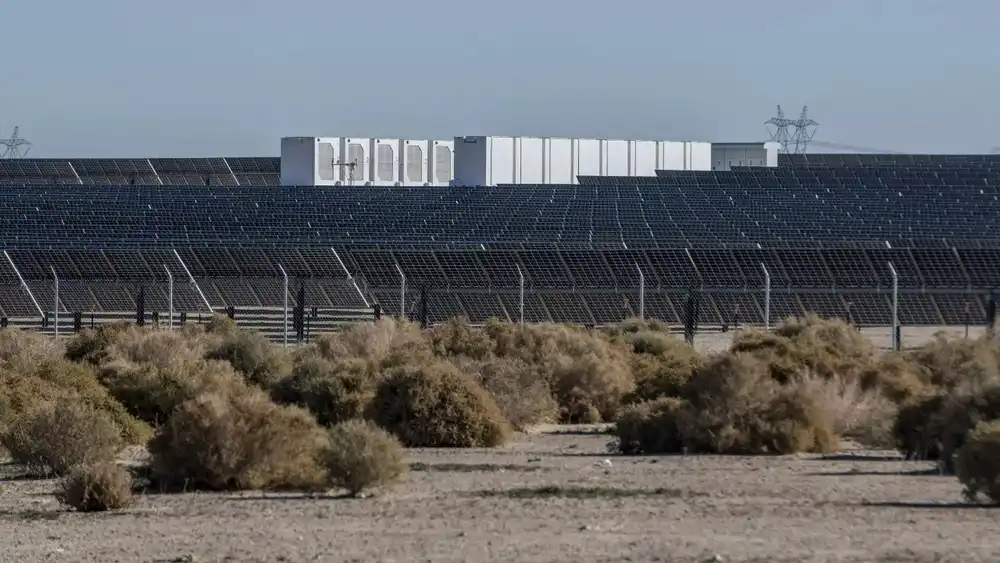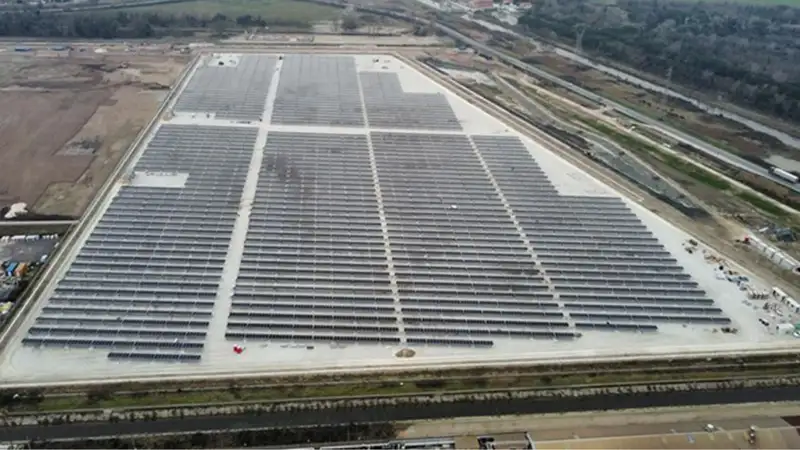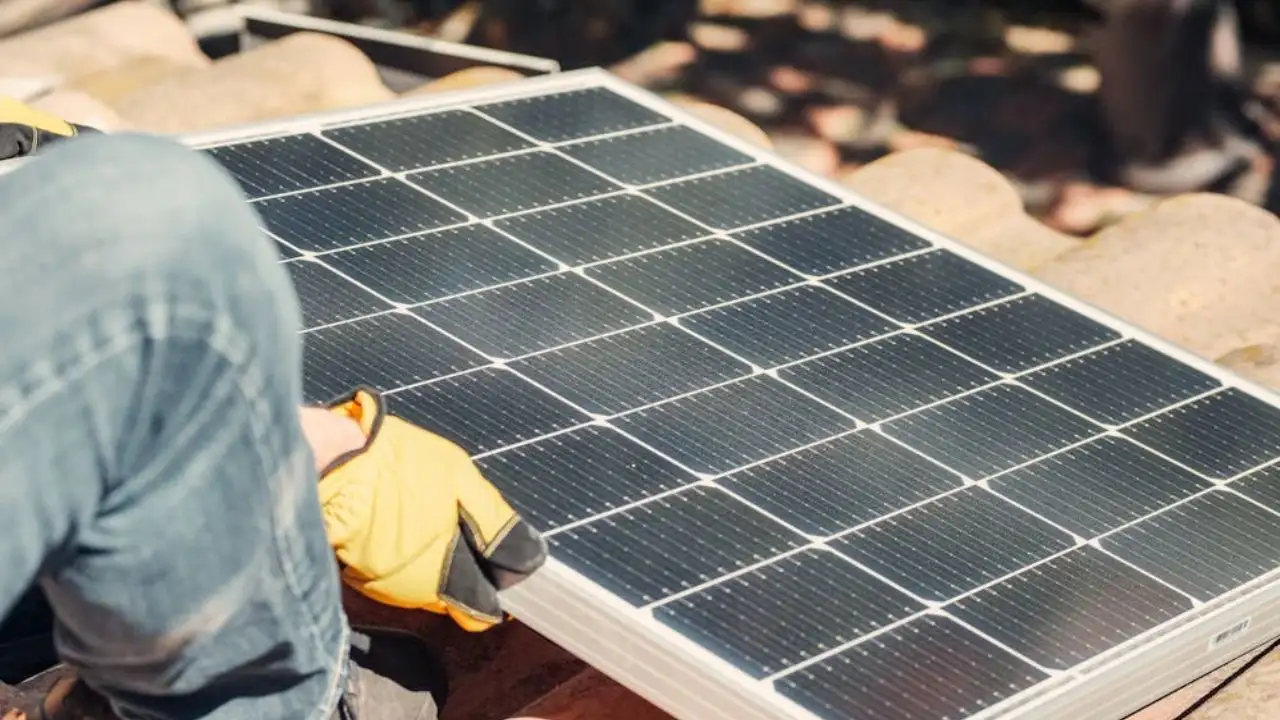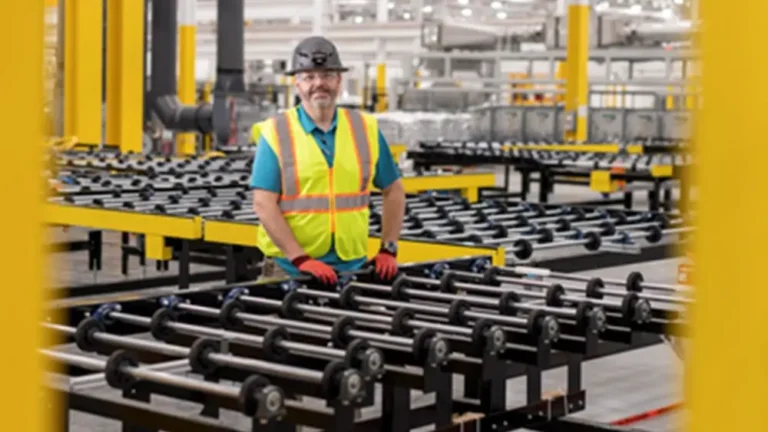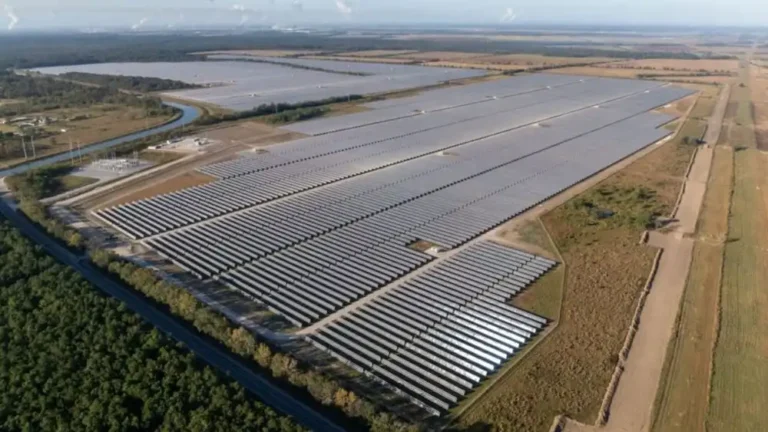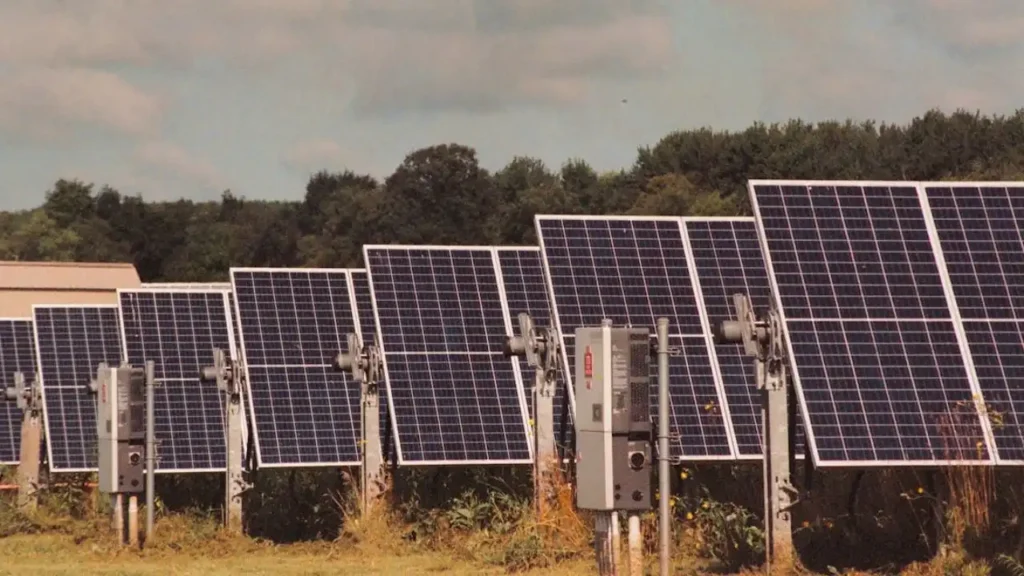
- Circular economic policies are needed to achieve the zero target for the UK solar sector.
- A report warns of future solar waste and recommends sustainable construction.
- Used materials such as car tires and old solar panels are being recycled for solar projects.
- Circular strategies can reduce solar waste and stimulate economic growth.
The UK solar industry is facing a pivotal moment, as a new report highlights the urgency of adopting circular investment practices to meet government net-zero targets “From linear to circular: evidence of from the UK solar industry,” the report finds Product design, material applications and end-of-life management must be rethought to ensure sustainability and avoid waste challenges in the future
Also read: British Library Launches Major Solar Heat Initiative
In the UK solar industry, the transition to a circular economy is considered essential to meet the government’s net-zero strategy and reach the 70 GW solar target by 2035. The report highlights how the current “linear” model, where products are emphasized , and consumed, and disposal poses significant environmental and economic challenges, especially for many of the materials used in solar panels
With an estimated 152,000 tonnes of aluminium, 8,700 tonnes of copper and around 670,000 tonnes of glass in UK solar plants by the end of 2023, these materials could become part of a huge waste stream by 2050 without proper disposal plans will be used again.
The report, co-authored by Anand Nidhi of the Exeter Center for the Circular Economy, stressed that if circular economic principles—such as recycling, repair and recycling—are adopted adoption, strengthening supply chain security and reducing reliance on volatile global supply chains.
It also provides economic benefits by keeping precious metals such as aluminium, copper and silver in circulation. Up to 1.2 million tonnes of solar waste could be generated by 2050, but with good recycling practices, this waste could re-support, and provide, the economy with $2 trillion worth of resources additional revenue has been generated from increased recycling
Also read: UK Reduces Blackout Risk with Renewable Energy Boost
Exciting projects are already underway, including recycling projects for solar panels. One such project is the recycling of carbon black from old car tires for use in solar energy, offering a sustainable alternative to the 29 million tonnes of tires that are discarded annually in the world all will be dissolved or incinerated This material acts like the cleaning components of solar panels Research has shown that it is can.
Another innovative project, led by Cornish start-up company Re-Solar in partnership with Hammersmith & Fulham Council, focuses on exporting older solar panels that still had a decade of service life to help upgrade renewable energy installations in areas affected by ongoing conflict.
While the benefits of transitioning to a circular economy are clear, the report also highlights significant barriers. These include a lack of end-of-life planning, design constraints that make recycling difficult, and differences in the details of materials used in the solar industry
Also read: UK Government Introduces New Plan for Energy Storage
The report recommends actions by stakeholders to overcome these obstacles. Policymakers need to introduce stricter rules on product development and end-of-life management. Manufacturers should prioritize solar products that are easy to clean and recycle. Supply chain partners, accreditation bodies and academic institutions have a role to play in promoting circular systems.
The UK solar industry is at a critical juncture. Immediate action is needed to meet the government’s waste-free target in the future. Implementing economic policies will not only ensure the long-term sustainability of the industry but also provide new opportunities for economic growth and employment in recycling and innovation. As Anandanidhi concludes, “Now is the time to act.”

